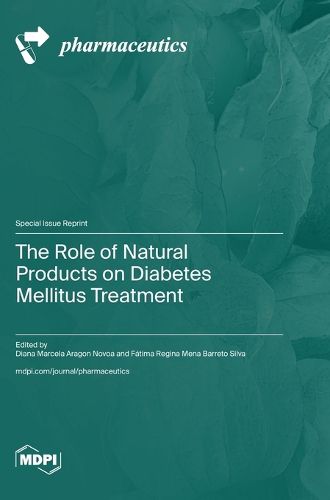Readings Newsletter
Become a Readings Member to make your shopping experience even easier.
Sign in or sign up for free!
You’re not far away from qualifying for FREE standard shipping within Australia
You’ve qualified for FREE standard shipping within Australia
The cart is loading…






The utilization of medicinal plants in the treatment of diabetes mellitus (DM) holds significant promise due to their diverse bioactive compounds. These plants have been historically acknowledged for their potential in managing DM and its complications. They often contain secondary metabolites with inherent hypoglycemic properties, aiding in regulating blood glucose levels. Several plants and secondary metabolites have shown effectiveness in improving insulin sensitivity, enhancing glucose uptake, and mitigating the adverse effects associated with DM. For instance, bitter melon (Momordica charantia) contains charantin and polypeptide-p, both known for their hypoglycemic effects. Additionally, fenugreek (Trigonella foenum-graecum) exhibits hypoglycemic properties attributed to the presence of trigonelline and diosgenin.
The complex array of bioactive compounds present in medicinal plants offers a multifaceted approach to managing DM. Flavonoids, alkaloids, polyphenols, and terpenoids found in these plants exert antioxidant, anti-inflammatory, and anti-glycation effects, mitigating oxidative stress and inflammation often associated with diabetic complications.
This Special Issue highlights the role of natural products in the treatment of DM, including recent patents as well as the effects of characterized extracts and the cellular mechanisms of isolated secondary metabolites in preclinical and clinical studies.
$9.00 standard shipping within Australia
FREE standard shipping within Australia for orders over $100.00
Express & International shipping calculated at checkout
The utilization of medicinal plants in the treatment of diabetes mellitus (DM) holds significant promise due to their diverse bioactive compounds. These plants have been historically acknowledged for their potential in managing DM and its complications. They often contain secondary metabolites with inherent hypoglycemic properties, aiding in regulating blood glucose levels. Several plants and secondary metabolites have shown effectiveness in improving insulin sensitivity, enhancing glucose uptake, and mitigating the adverse effects associated with DM. For instance, bitter melon (Momordica charantia) contains charantin and polypeptide-p, both known for their hypoglycemic effects. Additionally, fenugreek (Trigonella foenum-graecum) exhibits hypoglycemic properties attributed to the presence of trigonelline and diosgenin.
The complex array of bioactive compounds present in medicinal plants offers a multifaceted approach to managing DM. Flavonoids, alkaloids, polyphenols, and terpenoids found in these plants exert antioxidant, anti-inflammatory, and anti-glycation effects, mitigating oxidative stress and inflammation often associated with diabetic complications.
This Special Issue highlights the role of natural products in the treatment of DM, including recent patents as well as the effects of characterized extracts and the cellular mechanisms of isolated secondary metabolites in preclinical and clinical studies.